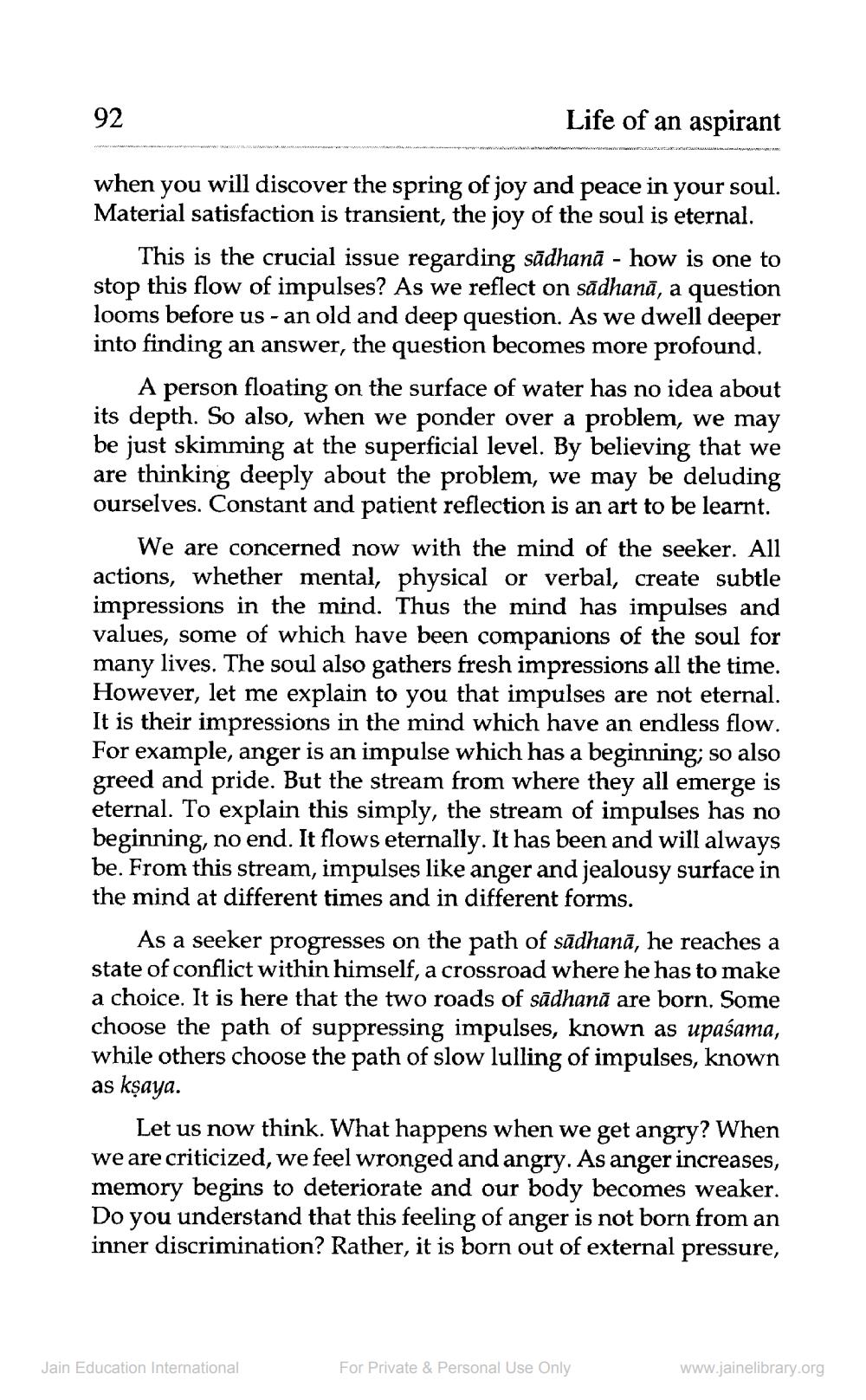________________
92
Life of an aspirant
when you will discover the spring of joy and peace in your soul. Material satisfaction is transient, the joy of the soul is eternal.
This is the crucial issue regarding sādhanā - how is one to stop this flow of impulses? As we reflect on sādhanā, a question looms before us - an old and deep question. As we dwell deeper into finding an answer the question becomes more profound.
A person floating on the surface of water has no idea about its depth. So also, when we ponder over a problem, we may be just skimming at the superficial level. By believing that we are thinking deeply about the problem, we may be deluding ourselves. Constant and patient reflection is an art to be learnt.
We are concerned now with the mind of the seeker. All actions, whether mental, physical or verbal, create subtle impressions in the mind. Thus the mind has impulses and values, some of which have been companions of the soul for many lives. The soul also gathers fresh impressions all the time. However, let me explain to you that impulses are not eternal. It is their impressions in the mind which have an endless flow. For example, anger is an impulse which has a beginning; so also greed and pride. But the stream from where they all emerge is eternal. To explain this simply, the stream of impulses has no beginning, no end. It flows eternally. It has been and will always be. From this stream, impulses like anger and jealousy surface in the mind at different times and in different forms.
As a seeker progresses on the path of sādhanā, he reaches a state of conflict within himself, a crossroad where he has to make a choice. It is here that the two roads of sādhanā are born. Some choose the path of suppressing impulses, known as upaśama, while others choose the path of slow lulling of impulses, known as kşaya.
Let us now think. What happens when we get angry? When we are criticized, we feel wronged and angry. As anger increases, memory begins to deteriorate and our body becomes weaker. Do you understand that this feeling of anger is not born from an inner discrimination? Rather, it is born out of external pressure,
Jain Education International
For Private & Personal Use Only
www.jainelibrary.org




